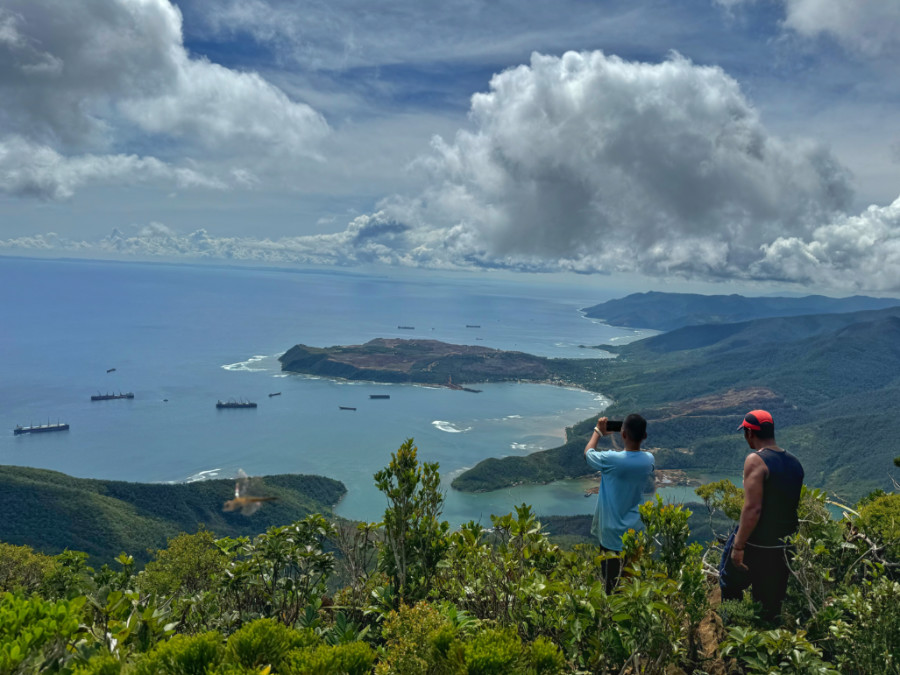
San José, Dinagat Islands – For decades,Leave No Trace (LNT) Principles Guiding principles for becoming a climber. These seven principles are: (1) plan and prepare in advance; (2) travel and camp on durable ground; (3) dispose of waste properly; (4) leave what you will find; (5) minimize The use and effects of fire; (6) Respect for wildlife; (7) Consideration of other visitors requires reading and memorization – as part of the Basic Mountaineering Course (BMC), and the hiking club application process.
Even those unfamiliar with the actual principles of LNT are likely familiar with its core idea, which is to leave the mountain as undisturbed as possible, as a famous saying goes: “Don’t change the mountain, let the mountain change you.” Or, to use the LNT mantra In terms of language:
Bring nothing but photos
Leave nothing but footprints
Kill nothing but time
These principles certainly help keep many of our trails and campgrounds litter-free. Additionally, LNT principles have become a moral vocabulary, holding visitors accountable for littering on trails or damaging rock formations.
However, LNT is limited in scope; it does not address the larger, more serious threats affecting our mountains today. Even if every hiker adheres to the LNT, it won’t save the mountains from destruction.
I was reminded of this on a recent hike when I commented on the pristine condition of the trail and the guide said it was because they had just experienced a “BMC” and they were required to enforce LNT principles. “But in reality,” he told me, “the mountain was going to be destroyed by the mining operation anyway.” In fact, as we had that conversation, we could clearly see the entire mining operation, slowly but surely The ground is carving away the mountains; we can also hear the sound of chainsaws. There is no underestimating the damage or dilution of a trash-filled campground Environmental damage caused by plastic waste along trailsI am well aware that mining, quarrying and other environmentally damaging activities cause greater and longer-lasting damage.
Some climbers have been at the forefront of addressing these broader environmental issues, but as a whole, the ethos of the hiking community is limited to how to behave responsibly on the trails, not just in the Philippines but in many parts of the country. in this way. world. as Simon and Aragona (2013) states, “LNT does not ask program participants to go beyond protecting designated recreation areas. Nor does the program implore adherents to promote the kind of interconnected environmental citizenship that links individual consumption practices to global production structures.”
This position is untenable given the many threats our mountains face today. We can insist, we might even feel good, that we take nothing but pictures, but people take everything but pictures, from rocks and minerals to flora and fauna. We can say that we have left nothing but footprints, but mining companies have left nothing to nature because The Big Hole in Redondo Mountain show. We may only be killing time, but the same destructive projects are killing everything, including entire forests and species, not to mention entire ecosystems and ways of life, in the name of greed.
Of course, we won’t agree on everything. Some may insist that responsible mining is possible even in fragile ecosystems such as Dinagat, Palawan and Sibuyan. My point is, the Philippines—our biodiversity and the many communities that coexist with forests— Should err on the side of securityand in any case, ensure that any project should not only be sustainable, but should actually benefit the local community.
Regardless of our specific views on a particular issue, we hikers can certainly find common ground in the need to protect our mountains themselves, not just the trails. We are in a unique position to witness ecological change and environmental destruction; we are privileged to listen to and learn from local communities; and we are in a unique position to speak out on these issues and ally with those who do so.
If we are to truly minimize our environmental impact and “leave no trace” in the environment, we need to go beyond LNT principles and help combat the larger threats to our mountains.


